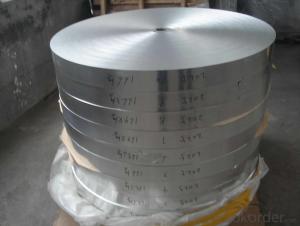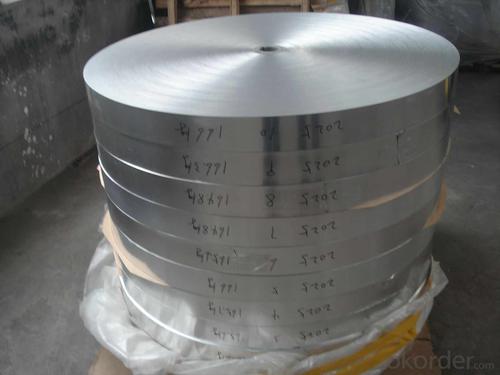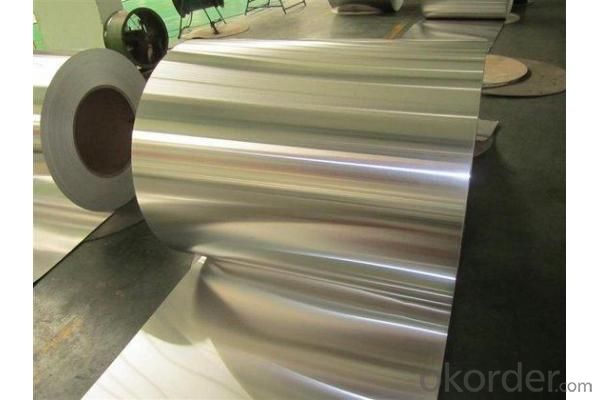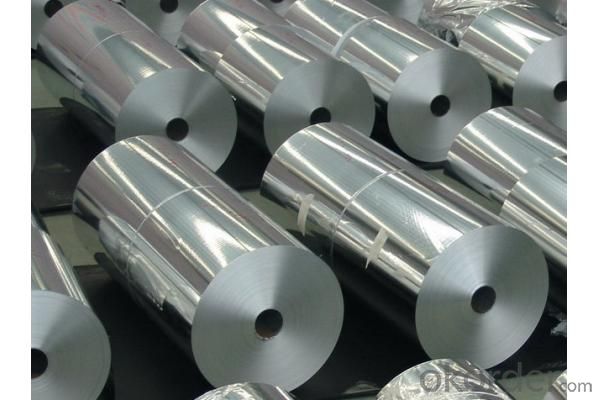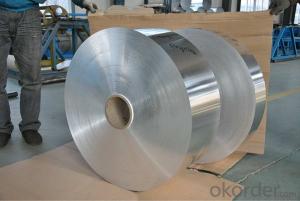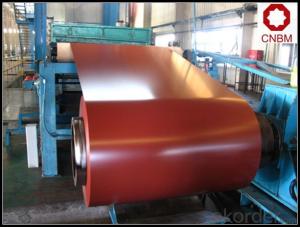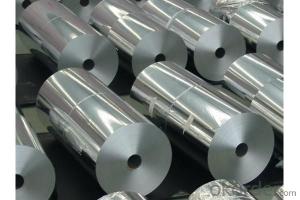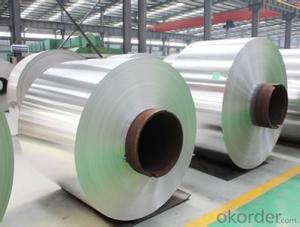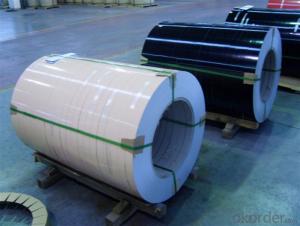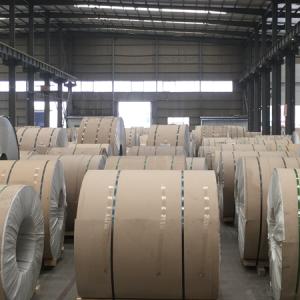Coil Aluminum Stock - Alloy Aluminum Coil 5005 5754 H32 H24 O for Building Material
- Loading Port:
- Tianjin
- Payment Terms:
- TT OR LC
- Min Order Qty:
- 100 m.t
- Supply Capability:
- 10000 m.t/month
OKorder Service Pledge
OKorder Financial Service
You Might Also Like
Specification
Specification:
Alloy | Temper |
1050 1060 1070 1100 | H112, H24, O |
2024 LY12 LY11 2A11 2A14 2017 2A17 | H112, T4, T351, T6 |
3A21 3003 3103 3004 3005 3105 | H112, H24, O |
5052 5754 5005 5083 5086 | H32, H112, H111, H24, O |
6063 6061 | H112, T6, T651, T5, T4,O |
Specification | 1.Thickness: 0.2-60mm 2.Width: 500-2000mm 3.Length:According to requirement 4.Temper: Various status Coils can be produced as your request. |
Application | Mainly used in construction, decoration, packaging, printing, covers material, signs,billboards, building exterior decoration, bus body, high-rise buildings and factories wall decoration |
Alloy Series | Typical Alloy |
1000 Series | 1050 1060 1070 1100 |
2000 Series | 2024(2A12), LY12, LY11, 2A11, 2A14(LD10), 2017, 2A17 |
3000 Series | 3A21, 3003, 3103, 3004, 3005, 3105 |
4000 Series | 4A03, 4A11, 4A13, 4A17, 4004, 4032, 4043, 4043A, 4047, 4047A |
5000 Series | 5052, 5083, 5754, 5005, 5086,5182 |
6000 Series | 6063, 6061, 6060, 6351, 6070, 6181, 6082, 6A02 |
7000 Series | 7075, 7A04, 7A09, 7A52, 7A05 |
Chemical Composition:
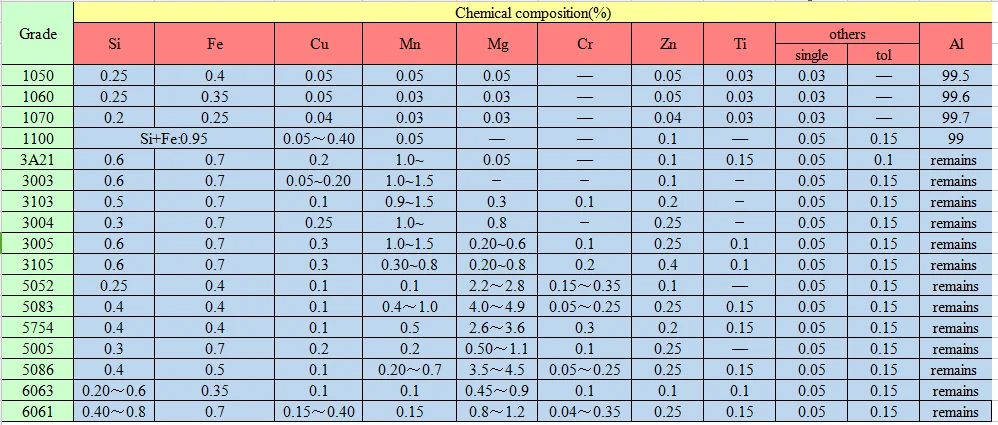
Packaging & Shipping
| Packaging Detail |
Coil is placed to the iron or wooden pallet ,rapped by water-proof kraft paper perfectly , then strong fixed by GI iron narrow belt .( About 2.5 ton / pallet ) |
| Dimension | 20 CM x 1220MM X 2440MM |
| Container | 20FT Container can load 25 tons max ; 40FT Container can load 27 tons max ; |
| Shipping | By Sea 20ft/40ft Container |
Our services
Main Services:
> Precision aluminum plate
> Casting products
> Forging products
Special Services:
> Alloy selection
> Aluminum machining techniques
> Hot working
> Surface treatment
Our Promise
---High quality stainless steel with reasonable price.
---Wide excellent experiences with after-sale service.
---Every process will be checked by responsible QC.
---Professional packing teams which keep every packing safely.
---Trial order can be done in one week.
---Samples can be provided as your requirements.
FAQ
Q: Do you have the CE, TUV, UL Certification?
A: We’ve already passed all the tests, and any certificate is available.
Q: Have you ever sold your products to companies in my country?
A: Of course, we have customers in all general PV markets, but I think we should expand our market share along with the market growth.
Q: How do you pack your products?
A: We have rich experience on how to pack to make sure the safety on shipment when it arrives at the destination.
Q: Can you do OEM for us?
A: Yes, we can.
Q: Can we visit your factory?
A: Surely, I will arrange the trip basing on your business schedule.
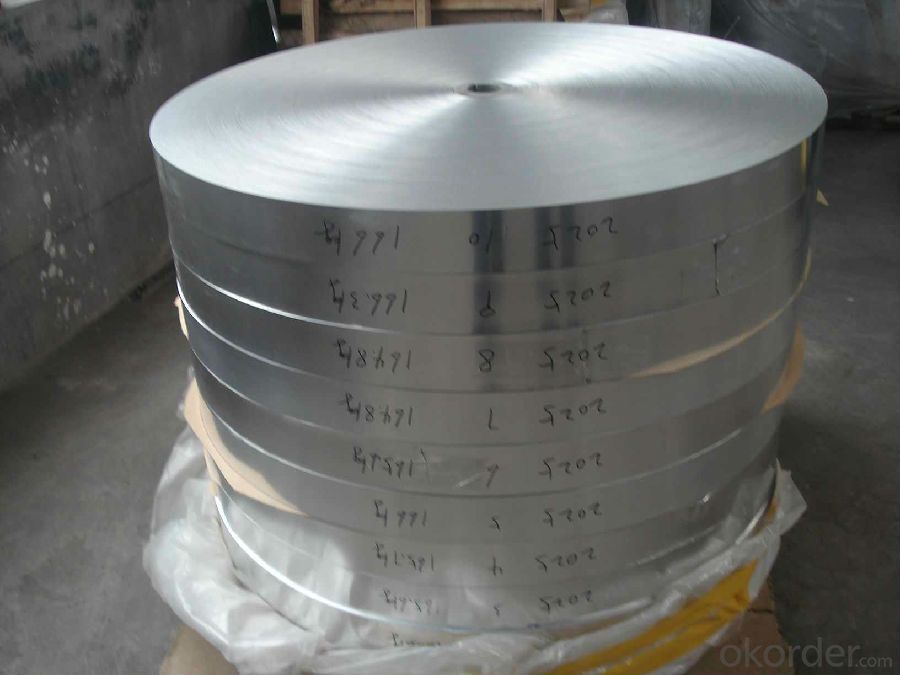
- Q: This question asks for criteria or methods to determine if an aluminum coil is of high quality.
- <p>To identify a high-quality aluminum coil, consider the following factors: purity level, which should be 99.5% or higher for most applications; surface finish, ensuring it's smooth and free from defects; thickness consistency, which should be uniform across the entire coil; mechanical properties, such as tensile strength and elongation, that meet industry standards; and adherence to specific alloy grades for particular applications. Additionally, check for certifications from recognized standards organizations and consider the supplier's reputation for quality and consistency.</p>
- Q: What is the minimum thickness available for aluminum coils?
- The minimum thickness available for aluminum coils can vary depending on the specific requirements of the application. However, in general, aluminum coils can be manufactured with a minimum thickness of around 0.006 inches or 0.15 millimeters. It is important to note that certain industries or uses may have different minimum thickness requirements, so it is always advisable to consult with a manufacturer or supplier to determine the appropriate thickness for a specific application.
- Q: Can aluminum coils be used for food processing conveyor systems?
- Yes, aluminum coils can be used for food processing conveyor systems. Aluminum is a popular choice for conveyor systems in the food processing industry due to its various beneficial properties. Firstly, aluminum is a lightweight material, which makes it easier to install and transport. This is particularly important for conveyor systems that may require frequent reconfiguration or relocation. Additionally, aluminum has excellent corrosion resistance, which is crucial in food processing environments where exposure to moisture, chemicals, and food particles is common. Furthermore, aluminum is a hygienic material that is easy to clean and maintain, ensuring food safety standards are met. Lastly, aluminum coils can be easily formed and customized to fit specific conveyor system requirements, allowing for efficient and effective food processing operations. Therefore, aluminum coils are a suitable choice for food processing conveyor systems.
- Q: Can aluminum coils be used in water treatment plants?
- Yes, aluminum coils can be used in water treatment plants. Aluminum is a corrosion-resistant metal that is widely used in various industrial applications, including water treatment. Aluminum coils are often used in heat exchangers and condensers, where they help transfer heat efficiently. In the context of water treatment plants, aluminum coils can be used in several processes. For example, they can be utilized in cooling towers to remove heat from the water by circulating it over the coils. The aluminum coils facilitate the transfer of heat from the water to the surrounding air, cooling it down in the process. Additionally, aluminum coils can be used in the construction of evaporators, where they aid in the evaporation of water during the treatment process. The coils are typically designed to have a large surface area, maximizing the contact between the water and the aluminum surface, which enhances the evaporation efficiency. Furthermore, aluminum coils can also be employed in the construction of air handling units (AHUs) in water treatment plants. AHUs help control the temperature, humidity, and air quality in the facility. Aluminum coils play a crucial role in AHUs by cooling or heating the air passing through them, contributing to the overall efficiency of the system. It is worth mentioning that the compatibility of aluminum with the specific water being treated is an important consideration. Some waters, such as those with low pH or high levels of certain chemicals, can cause corrosion or chemical reactions that may affect the performance or durability of aluminum coils. Therefore, it is crucial to assess the water composition and consult with experts or manufacturers to ensure the suitability of aluminum coils for a particular water treatment application.
- Q: I bought some cheap aluminum foil, but one weighs much less than the other brand for the same thickness and length, why?What is the other made of? Is it still good to use for grounding something?Thank you.
- Aluminum foil is aluminum foil, it has nothing but aluminum in it. One of them is misstating the thickness, or you are mistaken about the weight or width.
- Q: How do aluminum coils compare to other materials in terms of strength?
- Known for their remarkable strength-to-weight ratio, aluminum coils are highly competitive when compared to other materials. While aluminum may not be as strong as metals like steel or titanium, it still possesses sufficient strength to meet the demands of various applications. The strength of aluminum coils, relative to their weight, is often superior to that of other materials. Furthermore, aluminum coils exhibit exceptional corrosion resistance, enhancing their durability and longevity. Despite the availability of stronger materials, aluminum coils continue to be an excellent choice for many industries due to their favorable strength characteristics and numerous other benefits.
- Q: Explain the distinction between aluminum coil and copper coil, highlighting their properties and uses.
- <p>Aluminum coil and copper coil are both metal coils used in various industries, but they have distinct properties. Aluminum coil is lighter, more corrosion-resistant, and less expensive than copper coil. It is often used in applications where weight and cost are concerns, such as in construction and electrical wiring. Copper coil, on the other hand, has superior electrical conductivity and is more ductile, making it ideal for electrical applications where high conductivity is required, such as in power transmission cables and wiring for electronics. Copper is also used in plumbing due to its resistance to corrosion. In summary, the choice between aluminum and copper coil depends on the specific requirements of the application, including factors like conductivity, weight, cost, and resistance to corrosion.</p>
- Q: Is it possible to utilize a grinder for cutting an aluminum coil?
- <p>Yes, you can use a grinder to cut an aluminum coil, but it's important to use the right type of grinder and blade. An angle grinder with a cutting wheel or a metal cutting disc is suitable for this task. Ensure the grinder is powerful enough for the thickness of the aluminum coil and that you're using the correct safety equipment, such as goggles and gloves. Keep the cutting area clear of debris and ensure good ventilation to avoid inhaling aluminum dust, which can be harmful. Always follow the manufacturer's instructions for your specific grinder model to ensure safe operation.</p>
- Q: How are aluminum coils protected against moisture during storage?
- Aluminum coils are typically protected against moisture during storage by being wrapped in a moisture-proof material, such as plastic or a moisture barrier film. Additionally, they are often stored in a dry and controlled environment to prevent any moisture absorption.
- Q: What are the different protective film options for aluminum coils?
- There are several protective film options available for aluminum coils, each offering specific benefits and suitability for different applications. Some common options include: 1. PVC (Polyvinyl Chloride) Film: PVC films are widely used for protecting aluminum coils due to their excellent resistance to moisture, chemicals, and abrasion. They provide a high level of surface protection and are available in various thicknesses and adhesive strengths. 2. PE (Polyethylene) Film: PE films are another popular choice for protecting aluminum coils. They offer good resistance to moisture and UV radiation and are generally more cost-effective than PVC films. PE films are available in different grades, including low-density polyethylene (LDPE) and linear low-density polyethylene (LLDPE). 3. PP (Polypropylene) Film: PP films are known for their excellent tear resistance and high tensile strength. They provide good protection against mechanical damage and are suitable for applications where coils may undergo rough handling or transportation. 4. PET (Polyethylene Terephthalate) Film: PET films offer outstanding clarity and transparency, making them ideal for applications where visual inspection of the coils is required. They also provide good resistance to heat, chemicals, and abrasion. 5. Adhesive Coatings: In addition to films, adhesive coatings are sometimes used to protect aluminum coils. These coatings are typically applied directly to the surface of the coil and form a protective layer against moisture, corrosion, and scratching. When selecting a protective film for aluminum coils, it is essential to consider factors such as the intended application, environmental conditions, handling processes, and desired level of protection. Consulting with a supplier or manufacturer can help determine the most suitable option for specific requirements.
Send your message to us
Coil Aluminum Stock - Alloy Aluminum Coil 5005 5754 H32 H24 O for Building Material
- Loading Port:
- Tianjin
- Payment Terms:
- TT OR LC
- Min Order Qty:
- 100 m.t
- Supply Capability:
- 10000 m.t/month
OKorder Service Pledge
OKorder Financial Service
Similar products
Hot products
Hot Searches
Related keywords
